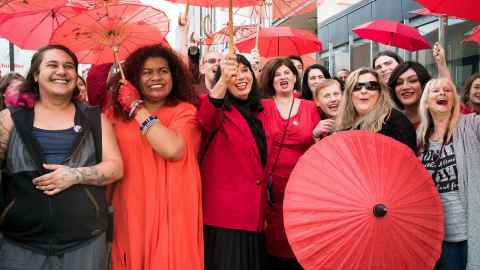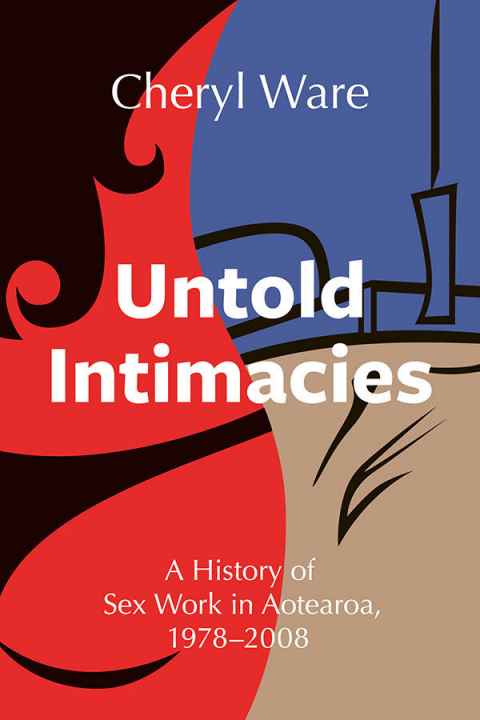From red lights to legal rights: a recent history of sex work in Aotearoa
14 July 2025
The rocky road to getting sex work decriminalised in New Zealand, a world first, is the subject of a new book by historian Cheryl Ware.

Sex work and the people involved in it have historically existed in morally contentious territory, suffering judgement and stigma, and with illegality forcing them into the shadows.
However, through the Prostitution Reform Act in 2003, New Zealand became the first country in the world to fully decriminalise sex work, albeit after hot debate and the narrowest of margins; a single vote.
It was a landmark moment, says Dr Cheryl Ware, a historian of sex, gender and health from the University of Auckland.
“New Zealand’s decriminalisation of sex work wasn’t just a legal shift, it was a social and cultural transformation. It gave sex workers the right to say no, to seek justice, and to be seen as workers.”
The Act was to safeguard the human rights of sex workers, protect them from exploitation, promote their welfare and occupational health and safety and prohibit the use of people under 18 in sex work.
For her new book Untold Intimacies: A History of Sex Work in Aotearoa 1978-2008 (Auckland University Press, July 2025) Ware, who specialises in late 20th century Aotearoa and Australia, spoke to 25 individuals who worked on the ships and the streets, in massage parlours and as private escorts across a turbulent 30-year period.
“Sex workers have always been part of our communities, but their stories have rarely been told in their own words. Oral history allows us to hear their voices directly, without filters,” she says.

The book starts in 1978, when sex workers were operating outside the law, then looks at the price of going public with their bid for decriminalisation, the slow professionalisation of the industry and the fight for workers’ health and safety, especially in an era of HIV and AIDs.
It finishes with decriminalisation in 2003, and its immediate aftermath.
Ware notes the marked difference in safety and conditions before and after decriminalisation, but also, the ongoing stigma.
“Before 2003, sex workers were criminalised, marginalised, and often targeted by police. The Massage Parlours Act of 1978 regulated brothels but didn’t protect workers.”
After 2003, life and conditions were much better legally, meaning sex workers didn’t have to be looking over their shoulders every night for the police, but society’s judgement remained, says Ware.
And the workers themselves were actively involved in pushing for reform, she says, with industry advocate Dame Catherine Healy, of the New Zealand Prostitutes Collective, chief among them.
“These workers were not passive recipients of change; they were organisers, activists, and storytellers,” she says. “They fought for their rights and reshaped the law, and I’m very thankful to Dame Catherine in particular for her close engagement with the entire manuscript, and all the others whose stories feature in this book, and who engaged with this project so openly.”
“Even with legal protections, stigma persists. Migrant sex workers in particular are excluded from the law’s benefits and remain vulnerable.”
As a coda, a 2008 government review of the Act found decriminalisation had not led to an increase in sex work, a concern of its opponents, and had improved safety and rights for workers.
Ware believes this story goes far beyond sex work.
“It’s about labour rights, gender justice, and how we value people’s lived experiences.”
The book was made possible with financial support from a Marsden Fast Start Grant, a postdoctoral Kate Edger Education Award, and a Judith Binney Writing Award.
Cheryl Ware is also the author of HIV Survivors in Sydney: Memories of the Epidemic (Palgrave Macmillan, 2019).

Media contact
Julianne Evans | Media adviser
M: 027 562 5868
E: julianne.evans@auckland.ac.nz